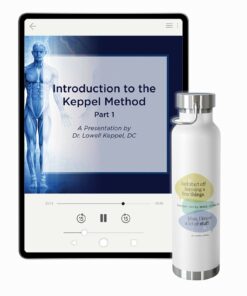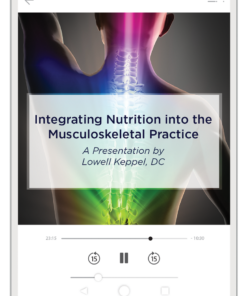Enjoy the latest installment of Dr. Lowell Keppel’s “Good to Know” series for practitioners.
Doctors, let’s be honest. Many times when we listen to our patients explain their symptoms and pains, we are engaging our educated minds to figure out what their problem is even before they are done talking. Depending on our specialty, we might think the problem is a subluxation of T4. Or we might think thyroid issues. You get the point, right? We develop a pretty good idea of what the problem is before the patient examination.
Why then do we still give them an examination or any tests? The obvious answer is that we want to verify what we think is going on. And, of course, we need to confirm our theories so we can develop an accurate diagnosis, offer effective treatment, and resolve the issue.
But what if—what if—we could use the exam and testing procedures to also educate the patient? What if we could say to them, “Yes, I know what your issue is, and I know what I need to do to help you. Here’s how and why I know.”
That’s why I pose this question: who is the exam for—you or your patient?
If we approach the exam from the standpoint of not only verifying our hypothesis but also educating the patient, we can build trust, confidence, and rapport. This in turn helps us educate them about the cause and effect of their issue, explain how nutrition plays a role, and talk about why our particular specialty can support the healing process.
Our procedures for patient examinations can often seem foreign and invasive to them. If your exam procedures are overly complicated, maybe you’re trying to prop up your ego. Or perhaps it’s out of low self-esteem or an attempt to justify fees you may not be comfortable with. Whatever the reason, it’s unlikely that you’re improving the doctor-patient relationship that is so critical to your client’s experience.
I suggest you consider making your examination and how you explain your findings simple and understandable. Your patient will ask fewer questions, and the questions they do ask will be more relevant to their situation.
I make it a policy to not overuse big words, though I admit that sometimes I might throw one or two out there just to let them know I know what I’m talking about! But even so, I always try to keep in mind that communication on the client’s level is important.
I also ask open-ended questions in the hopes it will pique their curiosity and generate their interest in the answers. Depending on the situation, I may ask, “Why do you think that muscle is weak?” Or I may ask, “Why do you think you don’t poop good every day?”
It is also a good idea to make sure that there is a logical flow and progression to your testing so that even a child could follow the procedure. For instance, when running an HSR graph, I’ll say, “Ms. Jones, the human heart sound is lub-dub. See here, S1 is lub and S2 is dub.”
“Looks like I have no dubs,” she may respond.
“Exactly!” I will tell her. “And now you can read your own heart graphs!”
To sum it up, talk to your patients in a way they can understand. Some will be more informed than others, but you can make adjustments for them. Also remember to simplify your exam procedures, which will also make you more efficient.
As B.J. Palmer said, “Get the big idea and all else will follow.” I find that patients who understand the big idea are much more likely to stick with the care we recommend. In turn, they will keep coming back to pay for our services and products, and they will convey to their friends and family how we can help with their issues as well. A great way to be effective as a practitioner and build a healthy practice!
Images from iStock/Wavebreakmedia (main), DragonImages (post).





